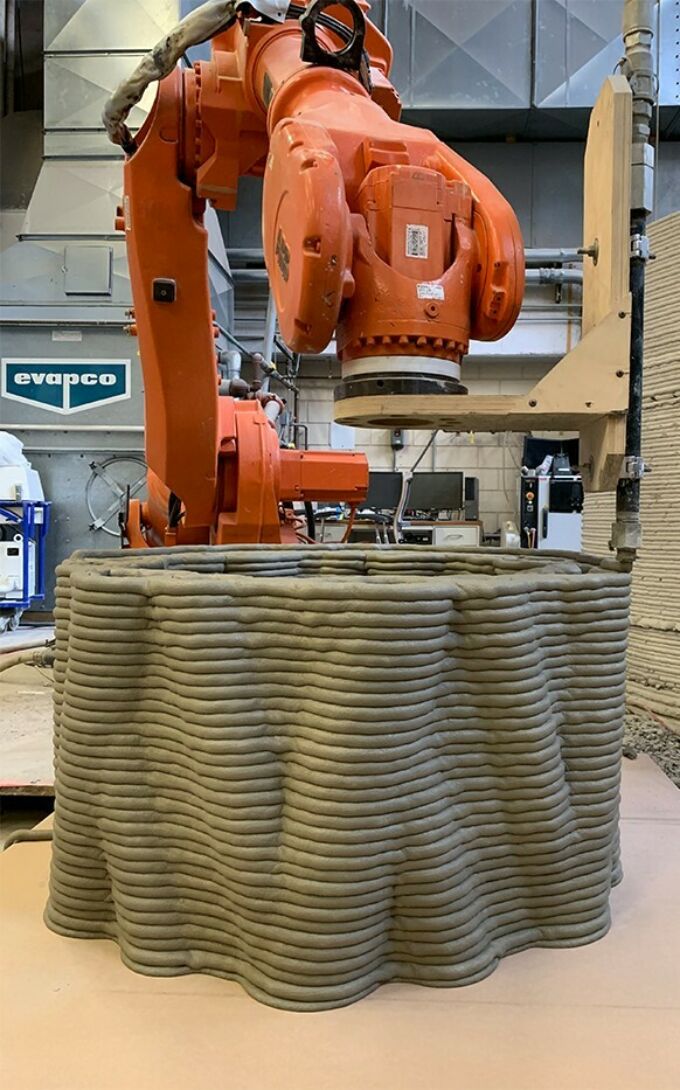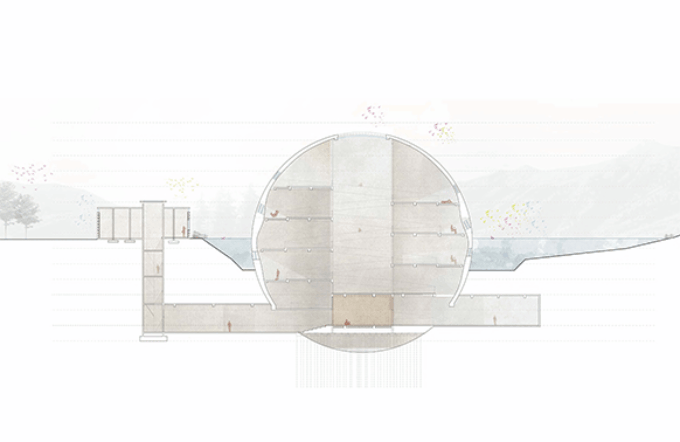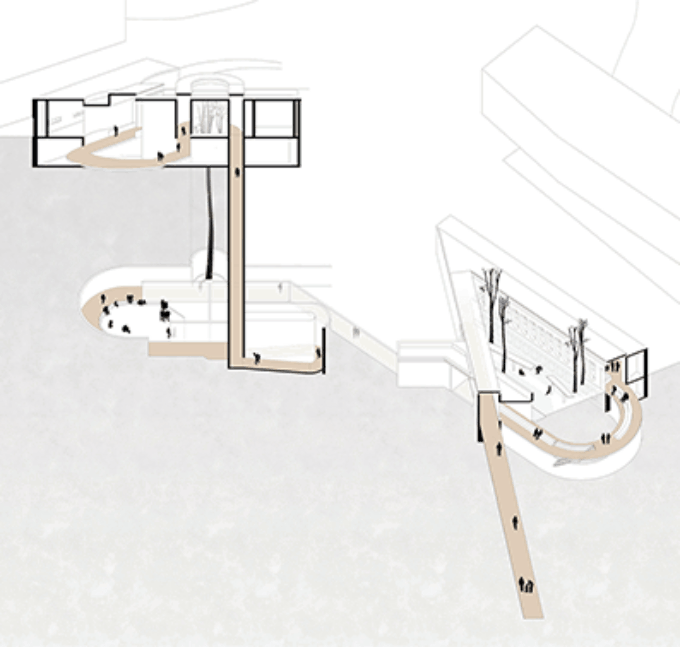Applying to the Architecture Graduate Program
What are specific characteristics that distinguish Penn State graduate degrees in Architecture from other programs in the United States?
- The Penn State Department of Architecture has outstanding facilities, including beautiful studio spaces, a well-equipped architecture and landscape architecture library, a gallery, computer labs, digital fabrication labs, several workshops for wood, metal, concrete and new materials exploration.
- The Department of Architecture is structured into 4 research clusters, which allow a variety of specializations in the fields of (1) Culture, Society and Space, (2) Design Computing, (3) Material Matters, and (4) Sustainability.
- The professional M.Arch program underwent a stellar NAAB accreditation in 2019.
- The faculty-to-student ratio is about 1:10.
- Our career day has brought about 70 professional firms from architecture, landscape architecture, and graphic design on campus to engage with our students and offer internships and jobs.
- Our career adviser provides input to students regarding portfolios, applications, licensure, AXP, NCARB, etc.
Are GRE scores required for the application?
GRE scores are not required for any of the Penn State Architecture graduate degrees.
Do I need a specific undergraduate or graduate GPA?
The Penn State Graduate School requires a minimum GPA of 3.0 for both undergraduate and graduate degrees in order to be accepted into our graduate programs.
What are the English proficiency requirements for international applicants?
For English proficiency requirements, please refer to the Fox Graduate School website:
Can the application fee be waived?
The application fee is required and paid to the Penn State Graduate School. The Department of Architecture is unable to waive the fee or pay it for applicants.
What is the typical tuition?
For tuition calculation, please consider the following the Penn State tuition website.
Do I have to apply for financial aid, such as a teaching or research assistantship?
All applicants are automatically considered for teaching and research assistantships. You cannot separately apply for assistantships.
Are there other financial aid opportunities and do I have to apply for them?
The Department of Architecture, in coordination with the Fox Graduate School offers additional funding in form of University Graduate Fellowships (UGF), Bunton-Waller Fellowships, and Graham Fellowships, along with funding that comes from Stuckeman School endowments and faculty research grants. Applicants are automatically considered for these funding opportunities. You cannot separately apply for such funding.
Which graduate degrees of the Penn State Department of Architecture are STEM-designated?
The M.Arch degree is a STEM-designated degree. The M.S. and Ph.D. degrees are not STEM-designated.
When will I be considered for “Advanced Standing” in the M.Arch degree?
The Penn State M.Arch. program is a three-year (seven semester) program for students who wish to pursue a professional career as a practicing architect. The following applicants are considered for “Advanced Standing” during the application process, which allows them to directly enter into the second year of the M.Arch.degree:
- Applicants with an international professional 5-year B.Arch. degree.
- Applicants with a 4-year B.S or B.A in Architecture or Architectural Studies degree from institutions who also offer an accredited B.Arch or M.Arch degree.
What does “Advanced Standing” in the M.Arch. degree mean?
The Penn State M.Arch. program is a three-year (seven semester) program for students who wish to pursue a professional career as a practicing architect. Applicants with specific degrees (see question above) are evaluated by a faculty committee on their eligibility to waive first-year studios (ARCH 531/532) and visual communications (Arch 521/522) courses. Applicants who have been evaluated by an admission committee for potential advanced standing into the second-year studio (ARCH 533) must further verify components of their undergraduate education during the summer before starting in the program. Of the six required “preparatory” courses listed below, students must earn waivers for four of the courses in order to enter directly into ARCH 533 (second-year studio): ARCH 503+504 Materials and Building Construction I and II; AE 421+422 Architectural Structural Systems I and II; and ARCH 380+381 Building Environmental Systems I and II. For the verification of coursework and grades in previous degrees, candidates must submit: (1) syllabus for each course; (2) samples of the student’s work for each course; (3) potentially an in-person oral/written exam. Each applicant will be assessed individually before classes start. When deficiencies are apparent, additional course work will be recommended.
What increases my chances to be accepted to the Ph.D. in Architecture and M.S. in Architecture programs?
Of crucial importance in the application process is your M.S. or Ph.D. essay (statement of purpose). The essay should clearly describe your research interest and focus. It is worthwhile to examine what academic research questions look/sound like, which you can find in any peer-reviewed architecture journal such as Design Studies, Frontiers of Architectural Research, Journal of Architecture, etc. (e.g., look for Architecture in the Scopus database). These articles are your goal for publishing success as a student and graduate. Therefore, your essay/SoP should sound like a legitimate research project—including Intro that states your Research Question and what the intellectual merit and broader impacts of the work are/will be; Theoretical Background discussing the existing research on the topic, and where the gaps in knowledge are that you will address; and Methodology stating how you will study the Research Question.
The online application also requires you to identify at least two faculty members that you would like to work with. It is best if these faculty are already familiar with your application before you apply. Your statement of purpose is the most critically judged element when evaluating admissions, so it has a better chance of success if it aligns with existing faculty expertise and research program. You might want to send your essay to potential advisors prior to your submission (at least six weeks in advance of the deadline, January 15th), so that faculty can gauge their interest in supporting your application. We strongly encourage you to be specific about both your research topic, as well as be limited in which faculty you contact for interest. Blanket emails to multiple faculty dilute your message, and risk being ignored.










